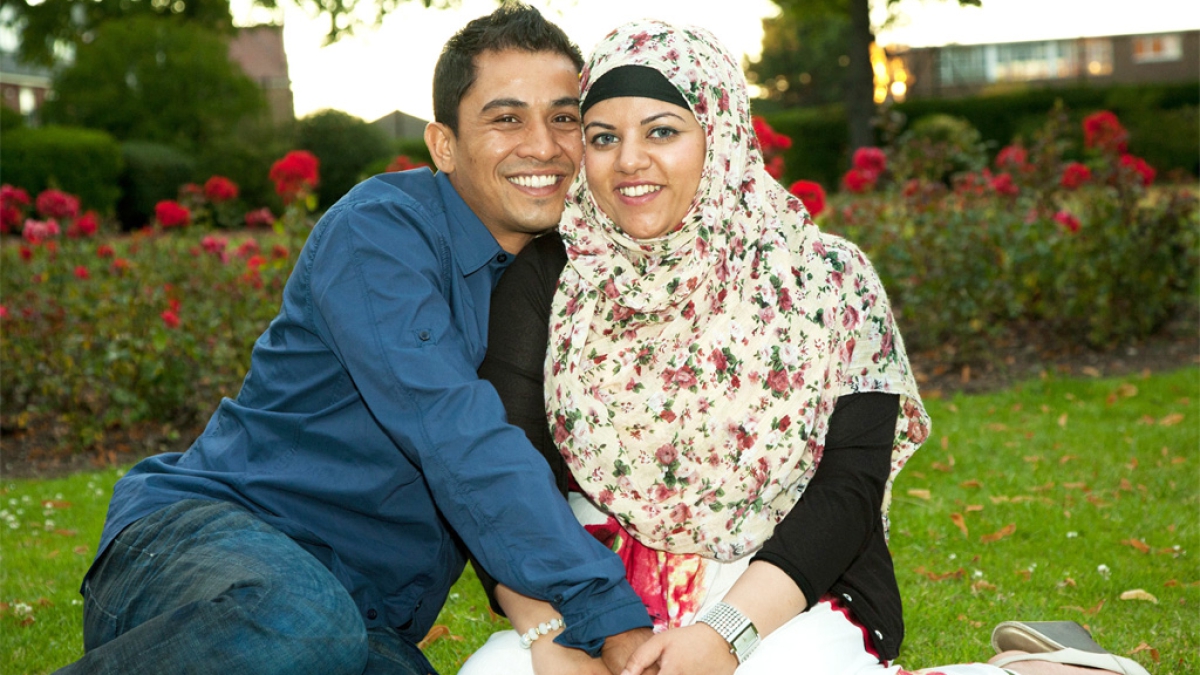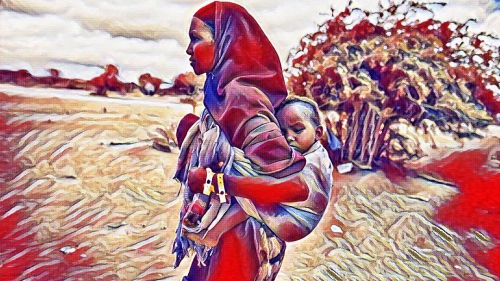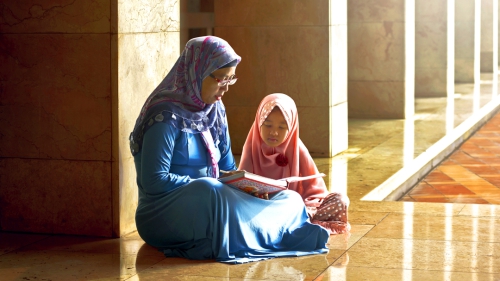Happy Family

"Certainly, the excellence of character and being gracious to one's household is part of the completion of faith " Prophet Muhammad
The human being as a social being has the responsibility of being most beneficial and least problematic to society. This responsibility begins in the closest circle of the community, the building block of society - the family. From there it extends to relatives, neighbors, friends and the rest of society. In this social context, let us reflect on some guidelines pertaining to individual responsibility.
Parents
The first in a series of commandments appearing in Surah al-Israa', God has decreed that you worship none but Him and be good to parents. We are instructed to reflect on the effort that parents exert to bring us into this world and to nurture us and therefore to acknowledge our appreciation we are advised to be thankful to God and your parents. Of all the bonds of relationships, the mother holds a unique position. When the Prophet was asked who has most right to our respect and companionship he said your mother, then your mother, then your mother then the rest of society. He also advised a young questioner regarding his relationship with his mother by saying paradise lies at the feet of thy mother.
Spouses
The relationship between two individuals coming together in a loving union of marriage ought to be based on love and compassion. The resulting union must provide sakinah (tranquility). The association of one with the other is described symbolically as garments unto each other; covering, embracing and protecting one another.
The marital relationship is the most intimate of relationships. This Qur'an makes reference to this close bond between the spouses in the words: "they are like garments unto you as you are like garments unto them". Within the bonds of this intimacy; shared feelings, honest and open communication, genuine understanding, mutual responsibility and caring needs to flourish. The intimacy must provide a haven that offers a sense of warmth, safety, security and interdependence. After all, the relationship, according to the Qur'an (30:21), is founded on mawaddah (love and affection) and rahmah (tenderness and compassion), intended to result in sakinah (tranquility and harmony).
This togetherness is multi-dimensional, but is ineffective if it is limited only to bonding through physical closeness. How often has the problem between the spouses been the separation of the husband and wife in unshared emotions, in not being aware of the opinions of the other, of having separate entertainments.
It is not uncommon for a husband to keep his problems to himself, not consider the advice or opinion of his wife, going off to enjoy sporting events while leaving the wife at home with the kids (as if it is her duty), and refusing to help with the household chores because "it is the women's work".
Togetherness means much more than sitting at the table for dinner and sleeping in the same bed. There must exist ...
-
an emotional togetherness that emanates from being attuned to each other's feelings
-
an intellectual togetherness that allows the sharing of thoughts, ideas and opinions
-
a work togetherness where there is involvement in performing chores and everyday tasks
-
a recreational togetherness when you have fun and excitement together
-
a crisis togetherness when you can lean on each other and support one another in times of difficulty and tragedy
-
an aesthetic togetherness through which you share the beauties of the artistry of life and of living
-
a spiritual togetherness by means of which you inspire the best in one another and grow closer to the Creator
The best of blessings for the husband is to have a faithful wife who does not betray her husband either in personality or in wealth.
Following the advice of Prophet Muhammad , it is best for the husband to live with his wife in keeping with the best of standards.
The Prophet said: Shall I inform you of the best among you? The respectful gentleman, who has good manners and honors his wife as best he can. In fact, the measure of the goodness of a man is measured by how he treats women.
Source: ICOI
Sadullah Khan is the Director of Islamic Center of Irvine. He has presented lectures on Islamic Civilization at California State University at Dominguez Hills. He is a frequent lecturer for the Academy of Judaic, Christian and Islamic Studies at UCLA (University of California, Los Angeles). He is also an advisor to the Chancellor's Committee on Religion Ethics and Values at UCLA and serves as Director of Muslim Affairs at USC (University of Southern California).
You can watch his lectures on Empowerment and Hadith of the Day at IslamiTV

















